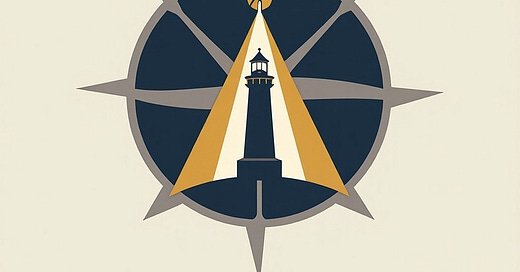Let me tell you about Wayne. The blind guy I always deliver to, the one living on that corner lot in the run-down mobile home park, tucked away in that weathered camper.
Last Monday, while doing my weekly grocery run for the local community pantry, I had a conversation with him that’s still sitting heavy on my mind.
Wayne and I always talk politics. It’s our thing. He’s a committed Trump supporter, and we often spar, respectfully, most of the time. That day, the topic turned to Trump’s deployment of the National Guard in Los Angeles.
Wayne defended it. I raised my concerns. Then, calmly and without accusation, I asked him a question that shifted everything:
“How do you compare the use of the National Guard in LA to the lack of response on January 6th, 2021?”
That’s when the conversation stopped being a conversation.
His face changed. His tone hardened. “Oh,” he said sharply, “this is about January 6th? Why does everything have to be about that?”
And then he shut the door.
Just like that.
What Happened Here?
Wayne lives close to the edge. His camper is one storm away from collapse. He relies on charity and community. His safety net is frayed. And sometimes, like all of us, he seems unconcerned that the very forces tearing it apart are the ones we’ve come to defend.
We’ve all been there in one way or another. I see it in myself, in neighbors, in quiet moments. And I think something deeper is happening. Something we haven’t yet found the right words for.
1. January 6th as a Mirror
That moment, when the tone shifted, wasn’t really about January 6th as a date. It was about what it represents.
Sometimes an event isn’t just political. It becomes a mirror. And mirrors are dangerous when the reflection challenges identity, loyalty, or the story we’ve told ourselves about who we are and who we follow.
When I raised the comparison between actions in Los Angeles and inaction on January 6th, I wasn’t challenging policy. I was brushing up against a contradiction in character. That is often where outrage replaces reason.
2. Loyalty Without Protection
Many of us are vulnerable in different ways. That’s one reason I help. And still, loyalty often runs deeper than logic, not because life is better under that loyalty, but because it makes us feel seen.
Loyalty, for many of us, isn’t earned through protection. It is shaped by identity.
A voice that says, “I see you” can carry more weight than policies that protect us. The emotional imprint matters more than the details. In a world that overlooks so many, being seen can feel stronger than being safe.
3. Doubt as a Threat
If we follow questions like the one I asked to their natural end, where do they take us?
They might force us to examine our media, our voting record, our worldview. That’s a heavy emotional cost, especially when life is already uncertain.
Doubt doesn’t just shake belief. It threatens belonging.
And so denial becomes a kind of armor. Not to win a debate, but to survive the dissonance.
4. The Power of Not Caring
Sometimes we act like we don’t care. We hold tight to false promises, excuse betrayal, accept banality, even lap up deceit, not just because we’re afraid of being alone. It’s deeper than that.
It’s a fear that if we let go of what we believe, we might lose ourselves or be cast out. Scorned. Pushed aside. And somewhere deep in our DNA, that kind of exile evokes a survival instinct.
Sometimes we find a belief that makes the world feel clear. Something that finally makes sense. Something that tells us we’re not crazy, it’s those “others” who don’t get it.
That moment of clarity becomes precious. Sacred, even. It’s not just a belief. It’s a feeling of finally being understood. Of finally belonging. And our minds defend our clarity with the ferocity of instincts born long ago.
So we protect it. Not because we’re stubborn or malicious, but because we’re fragile. We are fragile beings, shaped by pain, confusion, longing, and history. When we think we’ve found something true, we cling to it with everything we have. And for good or ill, our innate sense of survival rears its head.
We don’t pull our heads from the fog until the tribe starts to shift. Only then, when the group begins to change its tune, can we begin to safely and gradually rewrite our story. We let go of what we once believed, not by admitting we were wrong, but by forgetting we ever held that old view.
It disappears into the mist.
And suddenly, we’re back in sync. Simple. Neat. Tidy. No reckoning required.
Because reckoning hurts. And survival once demanded that we skip the pain and pretend we always knew better.
5. What This Might Really Be About
This isn’t just political division. It’s existential trauma.
The conversation didn’t end because of anger. It ended because the question was heavier than it felt safe to carry.
When the truth challenges a belief, it doesn’t just confront our thinking. It threatens the emotional scaffolding we depend on.
And maybe, just maybe, what looks like the end of a conversation is really a cry for something deeper.
Not answers.
But safety. Dignity. Belonging.
I still care. I just wish we could finish the conversation. I know I can’t compete with algorithms reinforcing a false reality with every click. But I do know I can try and never give up.
Because This Is Us. And truth always rises. In the end, reality is established.
What truths are we afraid to face?






Share this post